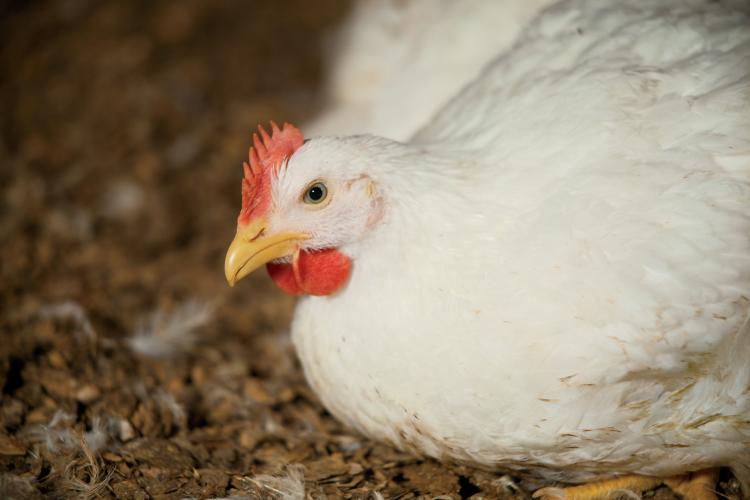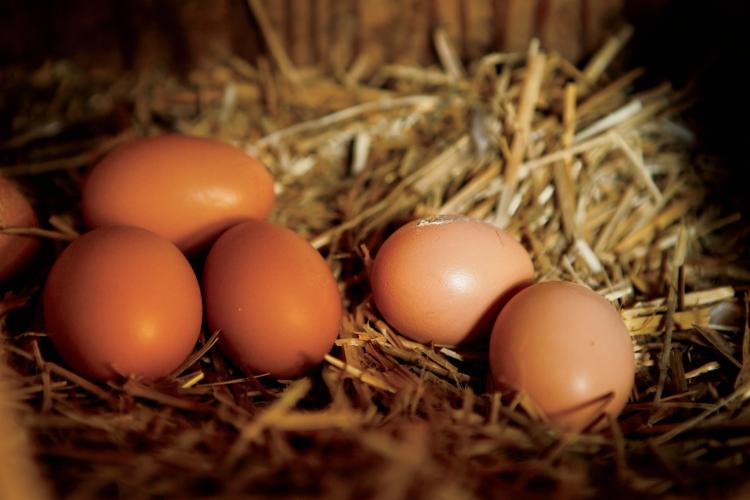Home > South Carolina > South Carolina Crops & Livestock > Healthy Birds Make for a Strong Poultry Industry in South Carolina
Healthy Birds Make for a Strong Poultry Industry in South Carolina

The South Carolina poultry industry’s value is in the billions of dollars and it is directly responsible for thousands of jobs, but its strength can be measured in more than just numbers.
That’s according to Connie Smith of the South Carolina Poultry Federation (SCPF), the voice of the state’s poultry industry since 1987.
“The industry in South Carolina is doing well and thriving,” says Smith, president of the SCPF. “(Its total cash receipts) are over $1.5 billion a year, and it directly employs around 8,000 people in the state. “But with spinoffs from the industry, there are many more jobs. There’s a lot more involved than someone might think.”
As examples, she points out the many feed and farm stores in the state, as well as “the building industry that builds the poultry houses and the propane used to heat the poultry houses.”
Other spinoff jobs include refrigerated trucks, paper boxes, egg cartons, rendering and construction companies, to name a few.
Of South Carolina’s top 10 agriculture commodities, poultry ranks with three categories: Broilers are No. 1 at nearly $700 million in cash receipts from 2011, turkeys are No. 2 at close to $306 million, and chicken eggs are No. 7 at $102.5 million.
The South Carolina poultry industry represents 40 percent of all agriculture in the state and is 80 percent of animal agriculture. Nationally, South Carolina ranks eighth in turkey production, 13th in broilers and 17th in eggs.

Healthy Birds
Much of the reason for the state’s strong poultry industry is due to the thoroughness of the animal health officials and scientists, particularly at the Clemson Livestock Poultry Health Center (LPH). Its role is to protect animal health through control of endemic, foreign and emerging diseases in livestock and poultry, as well as to protect the health of consumers by providing a comprehensive inspection service to ensure that meat and poultry products are safe, wholesome and accurately labeled.
South Carolina is part of the National Poultry Improvement Plan (NPIP), which was developed in 1935 as a nationwide program to reduce and eradicate Pullorum Disease and another salmonella disease of poultry called Fowl Typhoid. The program has been so successful that Pullorum and Typhoid are rare in commercial poultry.
“We want to make sure that the very serious diseases don’t come in to this state, or the very serious emergency ones like Avian influenza or Newcastle Disease,” says Dr. Julie Helm, poultry specialist veterinarian with LPH and the state’s NPIP coordinator. “These can have an economic impact (on the industry) and are disease issues for the birds.
“And we also deal with the everyday diseases, where we use our diagnostic labs when producers are having issues with birds. We can help them find the primary problem, so they can fine-tune management, fine-tune their vaccine programs or, in some cases, use correct antibiotics for treatment.”
Important Tool
The use of antibiotics on animals may have a negative connotation for many, but most veterinarians and animal scientists support their use. Some, indeed, are advocates.
One is Dr. Ron Prestage, owner and president of Prestage Farms, a turkey- and pork-producing comcompany with a plant in Cassatt. Prestage Farms produces more than 425 million pounds of turkey a year, with facilities that consist of genetic breeding, brooding and grow-out buildings.
“On one hand, there’s a group beating us up about animal welfare and on the other there’s a group beating us about the use of antibiotics,” Prestage says. “But to be honest, you can’t separate the two.”
“If you’re going to be a responsible caretaker of birds, you have got to use antibiotics to prevent, control or treat diseases. It’s a critically important tool.”




wanted to see if the al. dept of agriculture and ind. farmers market authority/ ag promotions is going to send out coupons to use at farmers market. please let me know if I need to contact another dept.